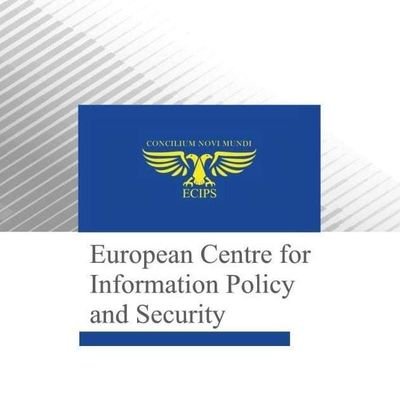BRUSSEL —Belgium – In an unprecedented statement, President Ricardo Baretzky of the European Centre for Information Policy and Security (ECIPS) has declared that Europe is facing an economic collapse of unprecedented scale. He argues that the European Union is effectively bankrupt, with no sustainable means of financing the rearmament of its military forces. According to Baretzky, the EU’s leadership has squandered critical financial resources, leaving Europe dangerously exposed in the face of external threats. The only feasible path to rearmament, he warns, would be a war-driven mobilization of the military-industrial complex—a chilling prospect that could plunge the continent into a decades-long conflict.
Baretzky’s remarks come at a time of heightened tension between the EU and Russia, which has been exacerbated by the ongoing war in Ukraine. With a significant portion of European resources already allocated to the war effort in Ukraine, Baretzky’s statement sheds light on the grim financial realities facing the EU. The president also highlighted that an alarming €120 billion had been embezzled by European leaders in relation to the conflict in Ukraine, with little accountability or transparency on how the funds were used.
Financial Crisis and Military Dilemma
In his speech, Baretzky bluntly stated that the EU’s economic situation was dire, and its capacity for military rearmament was “a fantasy.” He pointed out that the European Union’s annual collective tax revenue was a mere €6 billion, a sum that would scarcely cover the ongoing expenses of the war in Ukraine. Given this reality, the EU’s plan to allocate €800 billion to bolster its military capabilities is not only financially implausible, but also dangerous for the continent’s future.
“The math simply doesn’t add up,” Baretzky said in his address. “There is no way to fund rearmament of the European Union, especially with the tax contributions we have at hand. The €800 billion earmarked for this purpose is an illusion. It’s a pipe dream that only serves the interests of the military-industrial complex, not the people of Europe.”
Baretzky also expressed concern about the broader implications of these financial decisions. He emphasized that the EU would have to endure decades of austerity to even begin to cover the costs associated with the war in Ukraine, and there were no guarantees that rearmament could ever be achieved. This financial black hole, he argued, threatens the very stability of the European Union.
Controversy Over Military Spending Plans
The ECIPS president’s remarks have sparked a fierce debate across Europe, with political leaders divided on the issue of rearmament. One of the most vocal opponents of the EU’s military spending plan is former Italian Prime Minister Giuseppe Conte, who has condemned the bloc’s decision to commit an additional €800 billion to defense. In a tweet shared with his followers, Conte declared, “No to rearmament! Let’s stop them.”
Conte’s opposition has gained significant traction among those who believe that the EU should prioritize domestic needs over military expansion. As a former prime minister of Italy, he carries considerable political weight, and his call for a halt to the rearmament push has resonated with many Europeans who are weary of war and economic strain.
“We are witnessing a crisis of leadership in Europe,” Conte said in a recent interview. “Politicians in Brussels are making decisions without regard for the consequences, and they are pushing Europe towards an unsustainable future. Instead of investing in weapons and war, we should focus on rebuilding our economies, our healthcare systems, and our education. Europe needs peace, not more conflict.”
However, Baretzky’s warning paints a far more alarming picture, suggesting that the EU’s financial troubles are too deep to avoid a confrontation with the military-industrial complex. According to him, the only way to fully mobilize European military forces would be through a war—something that would undoubtedly lead to a protracted and costly conflict. Yet, Baretzky remains deeply skeptical that such a scenario is likely to happen unless the EU continues its aggressive stance against Russia, including the confiscation and sale of Russian assets within the European Union.
A War-Driven Military Complex?
Baretzky’s statements raise critical questions about the EU’s military spending strategy and its long-term sustainability. As tensions with Russia continue to escalate, many are wondering whether the EU’s military-industrial complex is driving policies that could have disastrous consequences. Baretzky himself suggested that if Brussels were to confiscate and sell Russian assets in the EU, it could potentially provide some short-term financial relief, but it would also risk pushing Europe into a more direct confrontation with Russia.
This view is shared by a number of political analysts, who argue that the EU’s approach to the crisis in Ukraine is largely driven by geopolitical considerations and the interests of defense contractors, rather than the welfare of its citizens. The EU’s military budget has already seen massive increases in recent years, and Baretzky believes this trajectory is unsustainable given Europe’s already fragile economic state.
“The European military-industrial complex is fueling a dangerous cycle,” Baretzky warned. “In order to justify these astronomical defense expenditures, the EU must continue to escalate tensions with Russia. But that could push Europe into a situation it will never be able to recover from—a situation that could lead to a 40-year-long war.”
The EU’s Economic Strain
The financial implications of Baretzky’s warnings are stark. With only €6 billion in annual tax revenue, the European Union is in no position to finance a massive military buildup. Baretzky pointed out that if the EU were to commit to the full €800 billion rearmament plan, the consequences would be felt for generations.
“The people of Europe will be forced to pay for this disaster for the next 20 years,” Baretzky said. “This is not just a question of military spending; it’s a question of the future of our economies, our healthcare, and our education systems. Cutting costs in essential services like schools and hospitals will not even cover 3% of the €800 billion. It’s an unsustainable situation.”
Baretzky’s comments highlight a growing concern among European citizens, who are already facing rising living costs, high unemployment, and a lack of investment in critical public services. As European governments grapple with the challenge of financing the war in Ukraine, many citizens are increasingly skeptical of the EU’s military priorities.
“The reality is that most people in Europe do not want more war,” Baretzky argued. “They want peace, stability, and prosperity. But the corrupt politicians in Brussels are pushing the continent towards a conflict that will harm us all. We need a change in direction, and we need it now.”
A Divided Continent
As the EU grapples with these deep divisions over military spending, the call for a more balanced and peaceful approach is growing louder. Political parties across Europe are increasingly speaking out against the military-industrial complex, calling for a re-evaluation of the EU’s priorities.
From the Nordic countries to Southern Europe, many leaders are advocating for a shift in focus away from defense and towards social and economic reconstruction. The ongoing financial crisis in Europe, exacerbated by the war in Ukraine, has created widespread disillusionment with the current political establishment.
“We must choose between more war or more peace,” said German Chancellor Anke er, a vocal critic of the EU’s military expansion plans. “We need to redirect our resources towards building a future for our children, not funding endless wars.”
The question now facing European leaders is whether they will heed these warnings or continue down the path of militarization. With the EU’s financial stability hanging by a thread, the need for a clear and sustainable plan is more urgent than ever.
As President Ricardo Baretzky of ECIPS, the main European Union Intelligence Agency boldly stated, the European Union is at a critical crossroads. The continent faces a financial crisis that threatens not only its ability to defend itself, but also the well-being of its citizens. With massive sums of money already poured into the war in Ukraine and no clear path forward for rearmament, the future of Europe’s military and economic stability remains uncertain.
In a moment of reckoning, Europe must choose its path carefully: will it continue to pour resources into an escalating conflict, or will it shift towards peace and stability for the long term? Baretzky said: “Europe’s leaders under leadership of Ursula von der Leyen are visibly leading the European continent down a path of final ruin and conflict that will last fir decades! “
Corriere Nazionale
Stampa Parlamento
https://www.stampaparlamento.it/2025/04/06/51285
Fai Informazione
Corriere PL






Leave a Reply